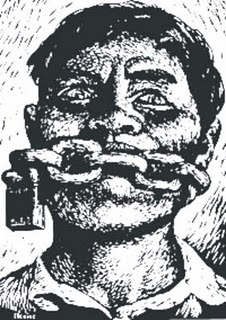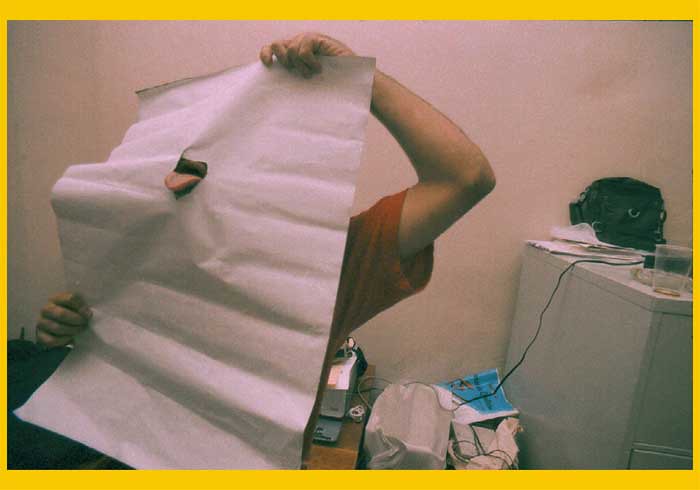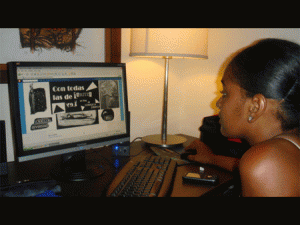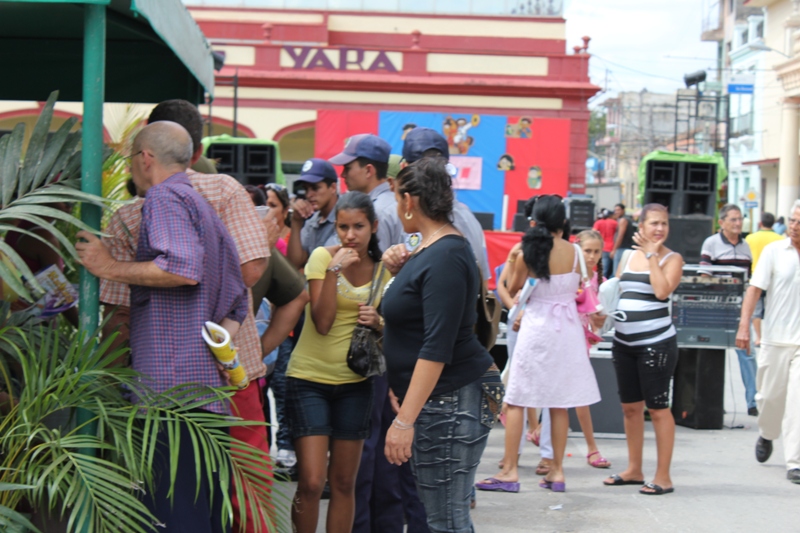 In Cuba, we do not fear physical pain. Instead, fear is directed towards all the weapons of the government which they use to oppress. The most lethal of them: the law and its punishments. It is the perfect method used to deprive you of everything: your freedom, your home, your goods, and even your desire to live. The application is strict and severe, using legal norms to condemn you for trying to survive, to think, or to speak.
In Cuba, we do not fear physical pain. Instead, fear is directed towards all the weapons of the government which they use to oppress. The most lethal of them: the law and its punishments. It is the perfect method used to deprive you of everything: your freedom, your home, your goods, and even your desire to live. The application is strict and severe, using legal norms to condemn you for trying to survive, to think, or to speak.
Jeovany Gimenez Vega, a First Grade General Medicine Specialist, perhaps refused to feel such a fear when he decided to send a letter to the Central Committee of the Cuban Communist Party on March 31, 2006, where he openly explained the neurological issues found in the health sector of the country.
His words were classified as subversive and his behavior was deemed to be “contrary to the social, moral, and human principles generated by a just a socialist society”. His attitude was a danger for the credit and services offered to the people by the Ministry of Public Health. He was more of a danger than the death of nearly 30 mental patients caused by starvation.
Gimenez Vega awaited anything — a meeting, a disciplinary council, a public warning, etc. But he wasn’t expecting to be stripped from his title of Doctor for an indefinite period. They were making him pay because of his insolence in questioning the economic politics of the country, the decisions adopted about medical collaborations in foreign countries, and the audacity of demanding a different lifestyle for the workers of the medical sector, one that would be different from those defined by the “principles of revolutionary society”.
Jeovany said what he was thinking, but his letter did not contain the desired form, and he sent it to the wrong place. Raul Castro already said it in his most recent discourse. They accept “differences in opinion, preferably expressed in an adequate form, time, and place”, in other words, “in the precise moment and in the correct form”.
They did not forgive his sincerity and his bravery for saying, without any cover-ups, that salaries of professional health technicians are “evanescent”, leading them to lives of suffocation, urgent agonies, and all of this at the expense of grateful patients, further leading them to lives absent of medical ethics. They also did not appreciate the fact that the letter was signed by 300 other workers from the health sector.
They had the perfect judge — Jose Ramon Balaguer Cabrera, who was stripped from his position in the Ministry of Public Health since his incompetence led to the death of mentally ill patients. Perhaps Cabrera was far too occupied with punishing the non-conformists instead. If he would have listened to the demands of Jeovany, maybe the Cuban Health System would not have such a horrid stain on its reputation.
Later, they used the ideal weapon — Resolution No. 8 from February 7, 1977. This particular law allows the procedure of suspension and disqualification of professionals in the health field for breaking “the active legal provisions and rules, or for acting without social, moral, and human value which medicine should have in our society”.
Balaguer, in protection of the referred rule, dictated his own — the Ministerial No. 248 of 2006. He did not care that the attitude of Gimenez Vega did not go against labor discipline, or that it also was unrelated to his performance as a doctor. This prohibited Vega from exercising the profession of medicine on a national level for life. Not for leaving mentally ill people to die of hunger, no. His crime was simply saying what he thought.
If Jeovany would have been involved in the Mazorra case, perhaps revolutionary justice would not have been so severe on him. Only two of the health professionals on trial were sentenced the prohibition of exercising their professions. In fact, those who were sentenced actually have the right to appeal the tribunal decision.
In the same manner, whenever it wants to be, socialist justice is very slow. What happened in the Mazorra Hospital took more than one year to carry out a trial. The sentence, dictated by Balaguer, which tried Gimenez Vega, took less than 6 months.
He did not have the possibility to appeal their decision, and not even the ability to complain to the Attorney’s Office that in his case there was a violation of the law, despite the fact that the Ministry did not claim any legal precepts which would classify the infraction committed by the young man. The prohibition of Jeovany from being a doctor had nothing to do with medical malpractice. It can also be seen as a warning for those other 300 who supported his demands.
And that is what is feared in Cuba: the law which legitimizes oppression and justifies every single governmental action, despite how arbitrary they may be, as well as their severe forms of punishment. The non-conformists, the dissidents, and all those who even slightly disobey them know what they are up against — a powerful force capable of turning them into nothing, of burying them so that they can never again lift their heads. And that is the lethal weapon of the Cuban Revolution.
Translated by Raul G.
March 11 2011


 “I know the naysayers are coming now to pour cold water on my illusions,” a neighbor parodied in a tango tempo, on hearing a Cuban television report revealing a plan to flood with soybeans what has been taken over by marabou weed, where sugar cane was once planted in the fertile lands of Ciego de Avila. The long documentary had its premiere at the end of the last meeting of the full Council of Ministers and tasted of a long-hidden letter, revealed at just the right time.
“I know the naysayers are coming now to pour cold water on my illusions,” a neighbor parodied in a tango tempo, on hearing a Cuban television report revealing a plan to flood with soybeans what has been taken over by marabou weed, where sugar cane was once planted in the fertile lands of Ciego de Avila. The long documentary had its premiere at the end of the last meeting of the full Council of Ministers and tasted of a long-hidden letter, revealed at just the right time. In Cuba, we do not fear physical pain. Instead, fear is directed towards all the weapons of the government which they use to oppress. The most lethal of them: the law and its punishments. It is the perfect method used to deprive you of everything: your freedom, your home, your goods, and even your desire to live. The application is strict and severe, using legal norms to condemn you for trying to survive, to think, or to speak.
In Cuba, we do not fear physical pain. Instead, fear is directed towards all the weapons of the government which they use to oppress. The most lethal of them: the law and its punishments. It is the perfect method used to deprive you of everything: your freedom, your home, your goods, and even your desire to live. The application is strict and severe, using legal norms to condemn you for trying to survive, to think, or to speak.



![Imagen 008[1] Punta Brava, La Habana-22-02-11.](http://www.TranslatingCuba.com/images/Silvio/imagen-0081.jpg)
